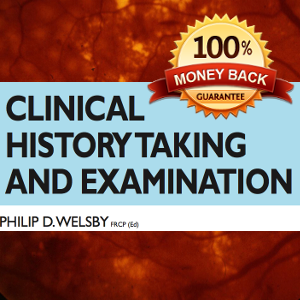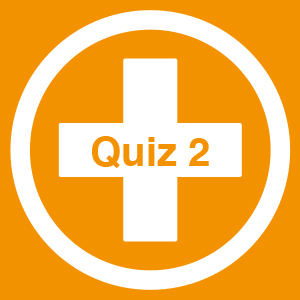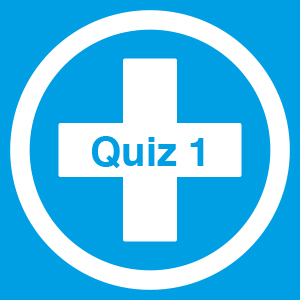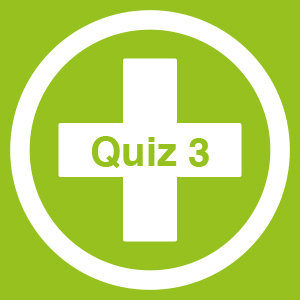Home
Struck On Medicine – Your Exam Revision Assistant For MRCP Part 1 & 2 / MBBS Medical Exams
We supply books and quizzes to help those studying for medical exams. If you are studying for your MRCP Part 1, MRCP Part 1 or MBBS exams then our comprehensive exam revision resources will give you the knowledge you require to pass exams. Our book and free online quizzes have been written by medical examiner Dr. Philip D Welsby and is therefore fully in tune with what you need in order to succeed. Dr. Philip D Welsby is:
- a widely published consultant physician
- has been a consultant for twenty five years
- extensive teaching experience at under graduate and post graduate level
- an examiner for MBBS and MRCP
These resources include:
- concise but comprehensive information with colour diagrams and clinical photographs
- summary tables for quick reference
- key point boxes for reinforcement and revision
- items that do not often feature in history and examination textbooks This includes diagnosis of patients who are too ill to communicate a history, violent patients, communication skills and examination techniques
- a list of medical careers that you can consider
Why not have a look at Dr Welsby’s book ‘Clinical History Taking And Examination‘ or our FREE quizzes below.
Our Resources Are Suitable For:
MRCP Part 1 Exam
MRCP Part 2 Exam
MBBS Exam
Our Books & FREE Quizzes
Have a Question For Us?
Feel free to get in touch today.
MRCP PArt 1 & 2 (UK) – What It Is
MRCP(UK) is an expensive exam and it is pointless to enter unless you stand a fair chance of passing. Always ask a trusted advisor, preferably a consultant who is or has been an examiner, whether he or she thinks you are ready to enter the process.
MRCP(UK) is the most important exam for all those who wish to progress to higher medical (and some other) trainings. The exam covers the core medical curriculum and entails knowledge of relevant Guidelines. For up to date information you are advised to visit the UK College websites.
There are two parts.
MRCP Part 1
This tests knowledge and understanding of common and important disorders. The minimum entry requirement is 12 months of postgraduate experience whilst in medical employment. Over one day there are two three hour papers with 200 multiple choice questions requiring you to decide which of five possible given answers is most appropriate. There are no images and the cost is about £400.
MRCP Part 2
There are three papers, each lasting three hours, over two days. There are 270 multiple choice questions requiring you to decide which of five possible given answers is most appropriate. The clinical part is PACES (Practical Assessment of Clinical Examination Skills). The cost is about £400.
What Happens On The Day
There are five stations in the PACES carousel with a total of five stations containing six clinical systems and two talking assessments. Each Station last for a total of 20 minutes and there is a five minute interval between Stations.
- Clinical Stations (1 and 3) comprise two ten minute encounters. In each encounter, one examiner (’the lead examiner‘) will show you brief written instructions. The initiative then passes to the candidate who should examine the patient appropriately. If you are asked to examine a system this is the main focus of the task, but do not fail to take a quick overview. You have a maximum of six minutes for the examination with a warning when five minutes have elapsed (if you finish earlier then then, by mutual agreement, the discussion can start). After the first ten minutes you will be shown a second patient with another system to be assessed.
- In the Talking Stations (2 and 4) you will have five minutes to study the written scenario and you will be provided with paper to make any notes you may wish and you can take these into the Station. At the start of each Talking Station a bell will sound and you should enter the Station, where you will be introduced to either a genuine clinical patient or, more likely a surrogate playing the scenario. At the Talking stations, the interaction with the patient/surrogate lasts a maximum of 14 minutes (a warning is given that 12 minutes have elapsed. If you have finished the task before 14 minutes have elapsed, you have to wait in silence for what remains of the 14 minutes, but you can always resume the interaction if you wish. At 14 minutes the surrogate will leave the room, you will have one minute to gather your thoughts before the interaction with the examiners commences.
- The Integrated Clinical Assessment’ Station (Station 5) comprises two ten minute Clinical Consultations. You will have five minutes before the start of this Station to read two clinical scenarios, one for each encounter. You will be given paper on which you may make notes. When you enter the room the examiners will ensure you know which Scenario applies to each encounter. For each encounter you have eight minutes with the patient (with a warning at six minutes) during which you have to use your initiative to take a focused history, perform a relevant examination, respond to the patient’s concerns, and explain your management plan. After the eight minutes you then have two minutes to discuss the relevant physical findings, your preferred diagnosis, any differential diagnoses, and possibly investigations required to confirm or deny your diagnostic suggestions. If you have finished before eight minutes have elapsed, you have to wait in silence for what remains of the 8 minutes, but you can always resume the interaction if you wish.
Time management is essential. When practicing clinical scenarios do not neglect to put yourself under time stress.
Each pair of examiners marks independently of each other and do now know how the candidate fared in other stations. If you perform badly on one system do not give up – bizarrely you can obtain no marks at all in one system yet still be able to pass the exam!
© 2025 - Theme by Themefyre



